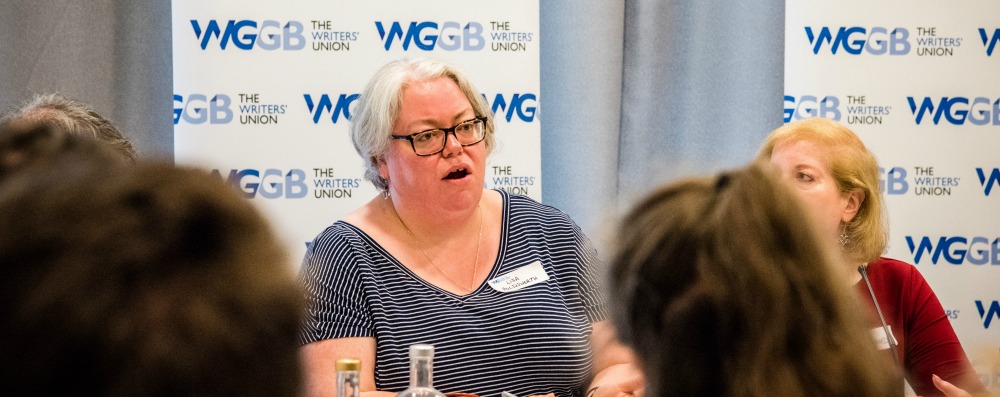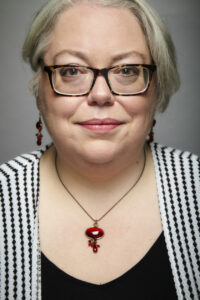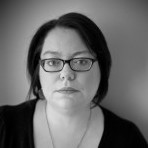
Part 2 MARK STATMAN: MEXICO AND THE POETRY OF GRIEF AND CELEBRATION
Part 2 of my interview with Mark Statman looks closely at Mark’s Latin American poetic influences, his life in Mexico and ends with an extract


I interviewed Lisa Holdsworth scriptwriter for TV episodes of New Tricks, Robin Hood, Emmerdale, Waterloo Road and more recently, Midsomer Murders, including the fans’ favourite ‘Death by Cheese‘ episode. Lisa is chair of the Writers’ Guild of Great Britain (WGGB) and has been shortlisted for a BAFTA award for her television writing. She talks about how she became a scriptwriter and what it’s like for writers in British TV today.
Leslie: From childhood onwards, what directed you towards TV script writing?
Lisa: I was a voracious reader as a child and I loved TV. I was initially interested in being a performer and went to drama classes. It was all just elaborate ways of story-telling which I eventually realised was what I loved to do.
Leslie: How did you get into the industry and what were the challenges you faced once you’d got started?
Lisa: I did a degree in London and then came back to Leeds. I wrote dozens of letters asking for work experience and eventually got a 2 month placement at Yorkshire TV but in factual TV. I wasn’t sure how I was going to make the leap to drama but I knew it was better to be in a TV job than outside. I ended up working for a factual TV production company and got to know Kay Mellor’s son-in-law. I asked him to pass a script I had written to her and she gave me some career advice. A little later, she offered me a job as her PA – still not quite the writing job I wanted. However, whilst I was there, I pitched an idea for an episode of Fat Friends and that became my first script commission. Even then I had to go back to secretarial work until the episode was broadcast and I was able to start looking for other writing work.
Leslie: For you, what have been the most important TV scripts you’ve worked on – why them?
Lisa: The thing about TV writing, all the scripts feel important when you are writing. It is a very consuming profession and you need to keep your enthusiasm levels at a high! However, my episode of Fat Friends was about the long term effects of bullying and I felt it said something important.
Leslie: What are you most proud of in your TV writing career, and why?
Lisa: Keeping going! It is really not easy to sustain a career in this industry and many great writers have fallen by the wayside due to lack of support and financial constraints. I’ve been doing this for 20 years and I’m pretty proud of that.

Leslie: What were the ‘unwritten rules’ you were expected to follow on various series? How have you changed and adapted your writing over time?
Lisa: It’s always changing. The thing I would say to writers is take all the ‘expert’ advice with a pinch of salt, Our industry is constantly developing and twisting. For example, the idea that you could have a character look into camera and give you her inner monologue was very much out of fashion until Fleabag – and then it was everywhere! And now it feels pretty passé. You should do whatever works for your story and characters.
Leslie: How do you try to improve the diversity of your scripts?
Lisa: Don’t assume that white/male/straight/able-bodied is the default for your characters. So often, I see character descriptions that do not mention the race, physicality or sexuality of a character UNLESS they are black, gay or disabled – and usually because their race etc has some bearing on the story. Look at your characters and ask yourself what the casting director will assume from the way they are written and then be clear about what you want to see on screen/stage.
Leslie: What is a ‘shadow script’ in TV and why is it a bad development in the industry?
Lisa: A shadow script is usually written by writers hoping to get on a soap or continuing drama. They are asked to write an episode that an existing writer has already been commissioned to write to see if they can produce a script of similar quality in the same time frame. The shadow writer is often expected to take edits and produce multiple drafts for a fraction of a script fee and often for free. It can be incredibly time-consuming for a writer and without remuneration can be an expensive exercise in futility. Especially if there is no job at the end of it. That means it rules out writers without an independent income which has devastating effect on diversity. The WGGB has successfully campaigned for them to be stopped.
Leslie: As an active member of the Writers’ Guild GB what are the bad practices you see most often in the TV writing world?
Lisa: Asking writers to do too much work for free. Development execs (who are salaried) expect multiple documents for no money. Writing is a profession not a hobby! If you are demanding time and effort then it must be rewarded with fair pay. There is also a complete lack of respect for writers’ home lives with late notes, multiple drafts, ridiculous story changes and unreasonably tight deadlines eating up writers’ evenings and weekends. This is particularly impactful on female writers who may have caring responsibilities. And there is still a huge amount of cronyism and nepotism in our industry – we are nowhere near being a meritocracy or inclusive.
Leslie: As a counter-balance, what have been your good experiences as a TV writer?

Lisa: There are some genuine good eggs out there. And I’ve been on some shows where I have had an absolute ball, been listened to and left feeling very valued. I had a great time on Call The Midwife with a predominantly female production team that was caring, thoughtful and inclusive. All Creatures Great and Small was brilliant fun. I loved writing on Robin Hood and was flown out to Budapest to watch my episode filming. And my time at Emmerdale was very precious because the writing team were such great people to spend time with.
Leslie: In an ideal world, what would you like to see as the content and style of the kind of TV shows you’ve worked on?
Lisa: I would like to see less dead bodies and more warmth, community and high emotional stakes. I love a good love story and drama that is about things that are small in the great scheme of things but huge to those experiencing them.
Leslie: What have you learned about yourself from working as a TV scriptwriter?
Lisa: I can hit a deadline! I have a good work ethic and can come up with story solutions very quickly. Oh, and there is no such thing as writers’ block.
Next week I interview Art Therapist and Counsellor Charlotte Jane Kessler about her therapeutic work in health/drug centres and her art therapy and grief work in women’s circles.
ABOUT LESLIE TATE’S BOOKS:

Part 2 of my interview with Mark Statman looks closely at Mark’s Latin American poetic influences, his life in Mexico and ends with an extract

I interviewed international poet and translator Mark Statman about Volverse/Volver, his 14th published collection. Mark, who has won national arts awards, is Emeritus Professor of Literary

I interviewed Lisa Dart, finalist in the Grolier, Aesthetica and Troubadour Poetry Prizes and author of The Linguistics of Light (poems, Salt, 2008), Fathom (prose

I interviewed writer Julia Lee Barclay-Morton about her experience of autism. Julia began as an experimental dramatist in New York, moving to the UK to

I interviewed Gillean McDougall from Glasgow, who edited the collaborative projects Honest Error (on Charles Rennie Mackintosh and his wife Margaret Macdonald) and Writing the
| Cookie | Duration | Description |
|---|---|---|
| cookielawinfo-checkbox-analytics | 11 months | This cookie is set by GDPR Cookie Consent plugin. The cookie is used to store the user consent for the cookies in the category "Analytics". |
| cookielawinfo-checkbox-functional | 11 months | The cookie is set by GDPR cookie consent to record the user consent for the cookies in the category "Functional". |
| cookielawinfo-checkbox-necessary | 11 months | This cookie is set by GDPR Cookie Consent plugin. The cookies is used to store the user consent for the cookies in the category "Necessary". |
| cookielawinfo-checkbox-others | 11 months | This cookie is set by GDPR Cookie Consent plugin. The cookie is used to store the user consent for the cookies in the category "Other. |
| cookielawinfo-checkbox-performance | 11 months | This cookie is set by GDPR Cookie Consent plugin. The cookie is used to store the user consent for the cookies in the category "Performance". |
| viewed_cookie_policy | 11 months | The cookie is set by the GDPR Cookie Consent plugin and is used to store whether or not user has consented to the use of cookies. It does not store any personal data. |
4 responses
Good advice. Thank you for an interesting interview.
🙂 🙂 🙂
Good questions and great answers. Thanks for this.
I’m glad you enjoyed it. 🙂 🙂 🙂